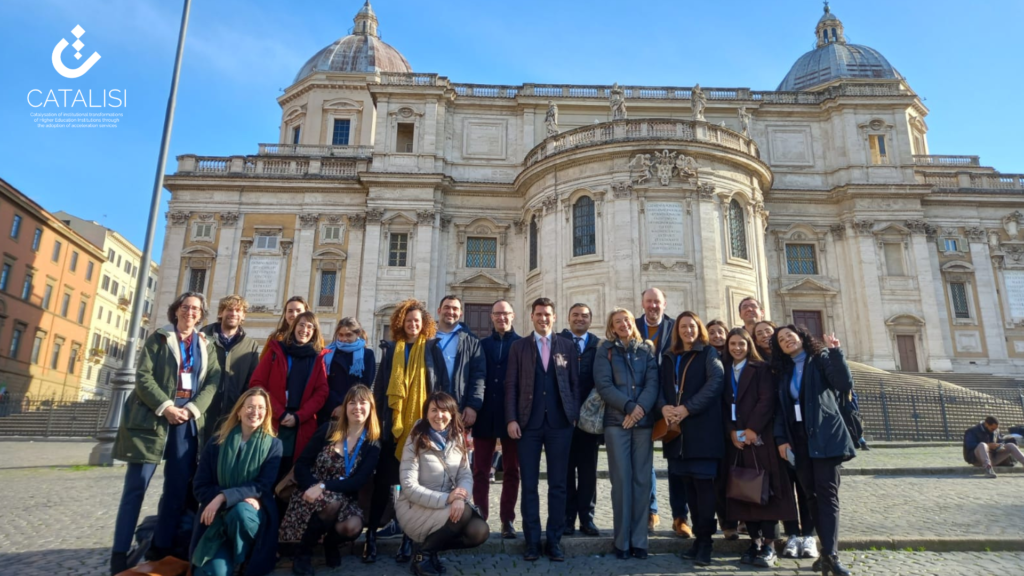The European Commission defines communication as the act of informing, promoting, and communicating activities, while dissemination involves making knowledge and results publicly available free-of-charge.
Communication, dissemination, and exploitation are not just abstract concepts but are mandated legal obligations under Article 17 of the Horizon Europe Grant Agreement. This requirement underscores the critical importance of ensuring that scientific knowledge and research findings are shared widely and made accessible to all.
But why is this obligation so crucial?
Historically, the field of science has been perceived as elitist, furthermore, the use of complex scientific jargon have often acted as barriers, preventing broader access to information and perpetuating cycles of exclusion. In the past, science communication was characterised by a one-way exchange, where scholars gathered in exclusive circles to discuss advancements, and the complexity of one’s discourse was sometimes equated with intelligence.
Scientific developments and challenges are often global, rapidly evolving, and uncertain. This landscape paves the way for pseudoscience and misinformation, posing significant challenges to the dissemination of accurate scientific knowledge.

The digital revolution and the COVID-19 pandemic have transformed the communication of science with a growing recognition of the need for inclusive communication practices that engage diverse audiences and foster accessibility for all.
It is crucial to make scientific information accessible to all. People should feel empowered and confident to engage with scientific information and feel competent enough to understand the knowledge. Promoting scientific literacy among the general public can empower individuals to critically evaluate information and distinguish between credible scientific sources and pseudoscience. Moreover, science communication should be tailored to the social context of different countries, empowering citizens to navigate scientific knowledge independently.
To address the communication crisis, scientists must actively engage in public discourse and collaborate with communication professionals. Collaborating with media outlets, educational institutions, and community organisations can amplify the reach of accurate scientific information and foster a culture of science engagement.
Open science principles, including making research freely available and fostering accurate and accountable scientific communities, are essential.

The CATALISI project serves as a bridge connecting the realms of research and innovation with the broader public sphere. Through its commitment to sustainability, inclusivity, and alignment with market demands, CATALISI not only advances scientific endeavors but also ensures that the benefits of research reach the wider community.
By fostering collaborative partnerships and innovative communication strategies, CATALISI facilitates the dissemination of accurate scientific information to the public, thereby bridging the gap between scientific developments and societal needs. In an era where effective communication is paramount, CATALISI’s efforts contribute to building public trust in science and promoting informed decision-making. Furthermore, by empowering diverse stakeholders to actively engage in the research process, CATALISI paves the way for a more inclusive and impactful approach to research and innovation.

Further read:
- European Commission, European Research Executive Agency, Communication, dissemination & exploitation what is the difference and why they all matter, Publications Office of the European Union, 2023, https://data.europa.eu/doi/10.2848/289075
- OECD Global Science Forum Responsible communication of science to the public Directorate for science, technology and innovation committee for scientific and technological policy https://one.oecd.org/document/DSTI/STP/GSF(2023)12/FINAL/en/pdf
- Michael Gaultois (Department of Chemistry), Joshua Conrad Jackson (University of North Carolina – Chapel Hill), Ian Mahar (Boston University), and Jaan Altosaar (Princeton University) discuss why much reporting on science is currently failing to resolve the trade-off between accessibility and accountability. https://www.cam.ac.uk/research/discussion/opinion-accurate-science-or-accessible-science-in-the-media-why-not-both







